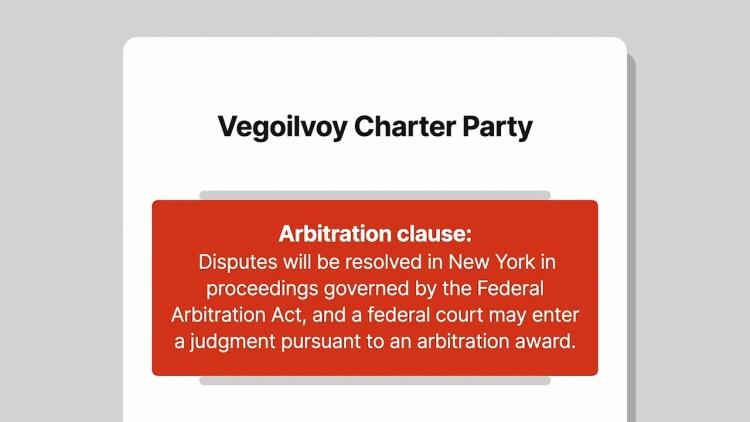Stolt-Nielsen S.A. v. AnimalFeeds International Corp.
United States Supreme Court
130 S.Ct. 1758, 559 U.S. 662 (2010)
- Written by Craig Conway, LLM
Facts
AnimalFeeds International Corporation (AnimalFeeds) (plaintiff) used maritime shipping company Stolt-Nielsen, S.A. (Stolt-Nielsen) (defendant) to ship its goods pursuant to a standard maritime contract known as a charter party. The specific charter party used by AnimalFeeds was called the “Vegoilvoy.” In 2003, the U.S. Department of Justice found that Stolt-Nielsen had engaged in an illegal price-fixing conspiracy. When AnimalFeeds learned of this it brought a putative class action suit against Stolt-Nielsen in federal district court, asserting antitrust claims. Thereafter, AnimalFeeds provided notice to Stolt-Nielsen that it demanded class arbitration. The parties agreed to allow a panel of three arbitrators to decide whether class arbitration was permitted under the contract, which was “silent” with respect to class arbitration. After a hearing, the arbitrators concluded that the contract’s arbitration clause permitted class arbitration. The district court vacated the decision, concluding that the arbitrators had disregarded aspects of federal maritime law. AnimalFeeds appealed. The court of appeals reversed and found that because Stolt-Nielsen failed to cite any authority applying the federal maritime rule of custom and usage against class arbitration, the arbitrators’ decision was not in manifest disregard of federal maritime law. The United States Supreme Court granted certiorari to review.
Rule of Law
Issue
Holding and Reasoning (Alito, J.)
Dissent (Ginsburg, J.)
What to do next…
Here's why 904,000 law students have relied on our case briefs:
- Written by law professors and practitioners, not other law students. 47,100 briefs, keyed to 995 casebooks. Top-notch customer support.
- The right amount of information, includes the facts, issues, rule of law, holding and reasoning, and any concurrences and dissents.
- Access in your classes, works on your mobile and tablet. Massive library of related video lessons and high quality multiple-choice questions.
- Easy to use, uniform format for every case brief. Written in plain English, not in legalese. Our briefs summarize and simplify; they don’t just repeat the court’s language.





